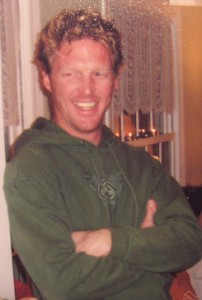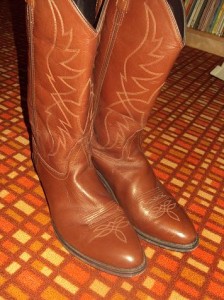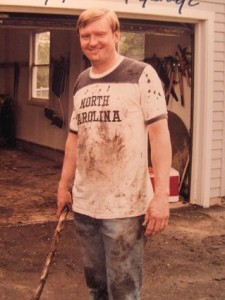 We’ve all heard preachers tell us we ought not to use the word “awesome” about anything but God. We ought not to be “in awe of” or “awe stricken by” anything but him. That’s because the accurate definition of awe is “reverent wonder, tinged with fear, inspired by deity.”
We’ve all heard preachers tell us we ought not to use the word “awesome” about anything but God. We ought not to be “in awe of” or “awe stricken by” anything but him. That’s because the accurate definition of awe is “reverent wonder, tinged with fear, inspired by deity.”
Nate had a strong reverence for God, but I don’t think I ever heard him use the word “awesome”, not in any sentence about anything or anyone. He wasn’t an emotionally expressive guy; he was a lawyer, and for lawyers, it’s all about facts.
What would it look like to “stand in awe” of someone or something? It might mean gazing with the mouth hanging open, trance-like, speechless, amazed, maybe followed by an immediate crumple to the ground, being overwhelmed. When does any of us look like that? If we ever do, what is it we’re looking at? And that’s the point. Not much in our experience can elicit that response.
Not much unless it would be a brush with deity. I felt a blip of awe today, and it was definitely linked with God, and also with Nate. I think often about both of them, dwelling near each other in paradise. My touch of awe was realizing that now Nate knows true awe.
He may never have used the word on earth, but surely he’s using it now on a frequent, if not constant, basis. He’s adoring, worshiping, possibly standing with his mouth hanging open and maybe falling in a heap after gazing at the only real definition of awesome, the Lord himself. And the minute I thought of it, I shouted, “Awesome!”
For having such a lofty definition, the word “awe” doesn’t sound very inspiring. It’s more like a random sound than a real word. “Awe” is only a hair away from “oh” or “ah” or “uh”, a few almost-words meaning next-to-nothing. A better word for “awe” might be “whamaz” or “bazang”, words with sparkle and flash. Or we could use supercalifragilisticexpialidocious.
My thoughts wandered to Nate and the amazing life he’s now leading in the breathtaking presence of God. I’m wondering if heaven doesn’t have an entirely new word for awe, which led me to think about the language we’ll all speak there. Each of us will belong to the family of God, so surely we’ll understand one another. My guess is we’ll speak a language no one on earth knows.
Scripture says the citizens of heaven will come from every nation, tribe, people and tongue, but it doesn’t say we’ll actually speak our native tongues. But God is an expert at making old things new, or in this case maybe changing the newer languages back into the old original. Or maybe there will be a brand new language altogether. No classes or language labs will be necessary, since he’ll just plunk it into our brains, and we’ll know it. Personally, I hope it involves clicks and clucks, because then our conversation will sparkle like glitter on a greeting card.
Whatever the new word for “awesome” is, I know we’ll be using it constantly in reference to God. “I’m in awe! You are awesome! I’m awe struck! You’re awe inspiring!”
When Nate left his cancer-battered body and went to be with God, he was physically changed. We know that for sure, because we buried his physical body while the living part of him went elsewhere. And it’s no wonder he had to be changed. The continuous-awesome that is his new life would have overwhelmed him completely on earth.
We all have such wonder to look forward to, provided we believe in Jesus as our way to God the Father. Nate believed, and found the way there, and now Nate knows true awe. And that’s a lawyer-approved fact.
“A great multitude which no one could count, from every nation and all tribes and peoples and tongues, [stood] before the throne and before the Lamb… and they fell on their faces before the throne and worshiped God.” (Revelation 7:9a, 11b)





